
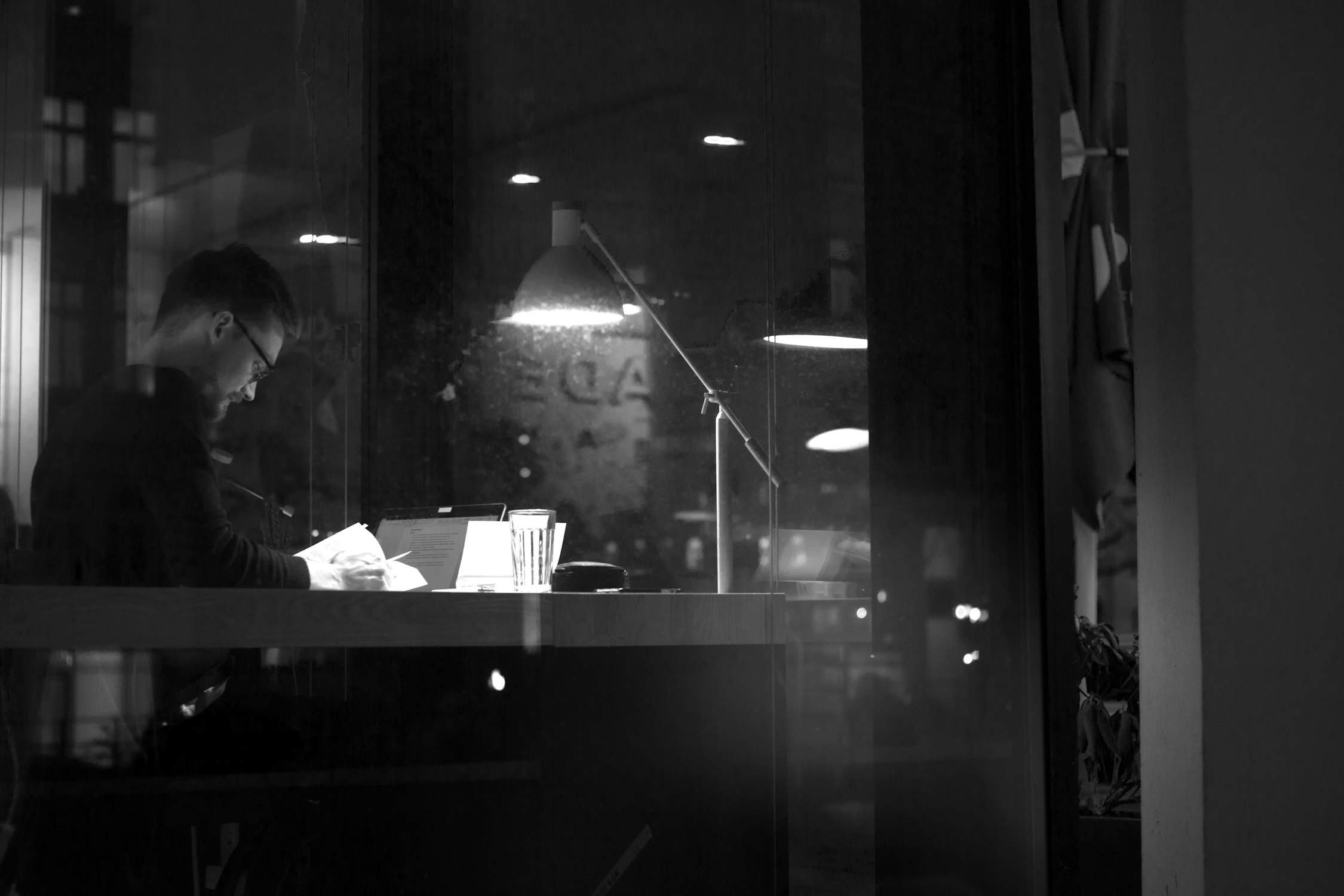
The backstory
I hope to share a bit of insight and remove the mystery behind what’s it like for someone who’s thinking about freelance and unsure. Money seems to be hush in our industry so I’d like to lift the lid on that too. I quit my fulltime job a few years ago and ended up freelancing full-time for a few years. It wasn’t really planned as I was contemplating on moving to New York to begin a new adventure and a full-time gig. I had some great offers from big agencies and was eyeing companies like Huge, R/GA and Work&Co. I was going to leave after I got married in Melbourne, so there was a 6 month window that I had after quitting. So in that time I started freelancing from leads I got on Dribbble and Behance. In the beginning it was a mixture of local agencies and some international clients.
Lessons learnt during my agency days
Everything I learnt in 8 years would help me with understanding business objectives, thinking about users, having a good design process, dealing with clients and how to close jobs. When I was Creative Director I was working on projects that hovered around $100k-$200k each and was supported by a great team. What this enabled me to do was to think about the value of the work that we created. And that pricing is relative and highly dependent on the value that you create for others. So it definitely gave me confidence to price based on this.
My starting point
When I worked full time I got paid every 2 weeks, worked 9am-6pm five days a week and had 4 weeks of paid leave every year. The pay would have tax withheld so I was making a few grand net every month. For transparency I was making $100k then including benefits.
In the first month of freelancing I made $10k and worked roughly 2-3 days a week with flexible hours. In the other days I would just make things for myself because even if it’s not paid I love designing, learning and tinkering. So I created some side projects to have fun with. I think FREEDOM is the best thing about freelance. In essence I worked less hours by working more efficiently on projects. I was learning a lot of new skills and had no more meetings about meetings thank god. It was all about the work. In the end freelancing started going so well that I decided to stay in Melbourne and not take up a full-time gig in New York, and just travel in between. It’s been over 5 years and I haven’t looked back since.
Life changes over that time
It’s worth noting a lot has changed in that time – I got married, my wife and I welcomed our 2 sons Theodore and Miles into the world, I began writing more, built an audience and created the Process Masterclass. In my opinion what it means to be a freelancer is summed up best by someone I greatly admire. Seth Godin says to be a freelancer means
To be a warrior without a king
SETH GODIN
Which means you don’t have to report to anyone. You are in charge of your own destiny and pursuits. And I think that’s what makes it interesting, scary and exhilarating at the same time. You gotta love the process of not knowing and hustling. If that doesn’t sound like fun to you than freelancing might not be your best option, because there’s no safety nets. So without further adieu here are some random insight and things I learnt freelancing in no particular order. It’s a bit of a brain dump but hopefully some of it will resonate and can help you in some way.
Here are the 18 lessons
1. Unlimited potential, unlimited loss
There is no ceiling cap on what you can earn as a freelancer. I loved my years working in agencies and collaborating with my teammates and doing great work for clients. But regardless of how much I worked there was always a cap on how much I could earn. The biggest pay rise I ever got in my career was $20k. With freelancing if you are committed and make the right decisions your earning potential can go up exponentially. Now it’s possible to double your income if you are committed and hustle hard.
(Not me though I work enough to have free time and explore other avenues that are interesting and won’t necessarily result in an immediate payday. Like this blog and other side projects haha) But time investment wise I definitely make much more. On the other end of the spectrum it’s not always a gravy train. You gotta back yourself and do the right things. If it doesn’t work out there is no fixed wage to fall back on, so you need to be able to manage your money well. Don’t blow all your money on drugs, strippers and Dom Perignon. You might make $30k one month and go through a drought if you don’t plan properly. Avoid the feast and famine scenario by planning well.
2. Price on value
Ok this is a good one. What is a project worth? I see a lot of designers put rates like $75/hr, $100/hr, $200/hr. But that still trades time for money. And it focuses more on what you want rather than what’s good for the client. A better way to price is to price on the value your work generates for a client. This is a long topic and it was a lot of trial and error on my end. But check out Dan Mall’s Pricing design on getting started with value based pricing if you want more.
So I prefer fixed project rates over hourly. However there is a base rate that I do work with for convenience – which is the lowest rate and that is $1k per day. A day can sometimes only be 4 hours of work or it can be 8 hours. It depends more on the outcome of a project and what you’re doing, if your work is going to make a business couple of hundred thousand, to millions depending on your experience and capability. Then why is it 1 price across the board? Try to experiment with pricing based on value. When you’re starting out, it’s about building that confidence and soft skills. So work on those areas first if you are hesitant.
3. Be prepared when shit hits the fan
In the last 2 years I've freelanced nearly every project has gone smoothly for me. But like all things in life sometimes there will be hiccups. You need to be prepared for when there are blunders because they will happen. And it will come from all different angles. Make sure you have proper contracts in place, so when shit does go haywire you’ve got something to cover yourself legally. (I haven’t reached anything major like this yet, but you never know so you gotta plan ahead.) Make sure there is NO miscommunication between you and the client. If you’re unsure about something ask, and then ask again. Do a line by line item of your deliverables, along with file types, and what you will and will not do. So if shit ever hits the fan it won’t be that bad.
4. Don't blow your money
Money is important because it provides leverage. You need enough to survive, shelter, food, bills, provide for your family etc. So if you are bad with money management, you might find yourself with a feast or famine mentality. Or you are afraid to price on value because you’ll be clutching at whatever job you can get. Or you become afraid to find time into investing in yourself which is critical to your success and growth. Money is not that important if you can cover your basic needs and then some. So take it easy on the drugs, gold rolexes and Dom Perignon. There’s more important things – having money will allow to do the kind of work you want to do and not the work you have to do.
5. More free time to invest in yourself
When you work 40 hours a week + commuting to work. That’s roughly 45 hours gone in a week. By the time you get home you may be exhausted and want to veg out. So you spend time consuming, rather than producing or growing. Now don’t get me wrong I love Game of Thrones (god the last season sucked though), Rick and Morty, or whatever hit show is in vogue, as much as the next person. And can totally binge out. But you need to find time for growth.
Once I became a freelancer I had much more time to invest in learning new things. Suddenly those 45 hours opened up. Sometimes it’s client work, sometimes it’s just reading and expanding my mindset. Read more books, articles, watch videos, podcasts and take online courses from people I admire. In the last 2 years the rate that I am learning at has gone up exponentially. And that’s lead to more opportunities and grown other parts of my business which I’m implementing now. Learning more about design, marketing and business.
6. Start side projects
In line with more free time and not blowing your money. You can start projects that you are passionate about. Do something you’ve always wanted to do. Ever felt like you are not doing your best work? And that you had so much more to give if only just the right project would come along? Well now is the time to see what is the best thing you could possibly create. You’ve got the time now. Create lots of side projects it doesn’t just have to be one.
7. Do the work that you want to do
Unlike when you work for others. If you freelance you have the capacity to work with projects that interest you and clients that you can genuinely help and excited by. Of course this doesn’t happen overnight – you have to work on your brand, your reputation, your craft and soft skills. I had spent 8 years doing that, so the transition wasn’t too difficult. I spent the next 2 years helping some great companies. I’ve really enjoyed working with the people that I have. I’ve learnt a lot and have created work I’m proud of and has done well for my clients. When you do the right things you have the luxury to say no. Or if you don’t win a pitch no biggie.
8. Business 101. Just give a shit about other people
Don’t think about yourself and what you are going to gain. Just try to care. The more value you provide for others the more valuable you will become. Sure it might not pay off immediately it might take 2 years or maybe never. If you help enough people though eventually people will return the favour. This blog directly doesn’t make any money. I don’t do advertising, no affiliates or sponsors. It helps a lot of people reading though, my inbox with the thank you emails is a testament to that.
When I launched process a big portion of people purchased it, because of all the free info here. Because I bothered to email people back. Because I just gave a shit and continued bringing value to others. When clients asked for a bit of extra work, sometimes I’d just help out. I could’ve easily charged $2k more but more important than immediate cash is just giving a shit. Think about how you can help the next person and pay it forward. You’ll be a better person, designer and freelancer for it. How many people can you help?
9. It sucks sometimes and that's ok
There’s a lot of positives so far, but sometimes it’s gonna suck balls. You can’t get motivated to work. Maybe you do need to take that odd job just for the money, because moneys drying up. Or leads just aren’t hitting your inbox fast enough so you gotta do less design and go out there and hustle. Market, network and all that other jazz that you can’t be fucked doing. Or maybe because no one is around and it’s just you, no more team mates and friends to high five. The reality is sometimes it’s going to be scary or it’s going to suck. But that’s ok. Just recognise it and do something about it. Failure only happens when you leave it here and this is where it ends. If you work through it, these can be the best moments for growth if you learn from it.
10. Learn from people who've done it
This is the big one. Find somebody who have done what you want to be doing and learn from them. Being resourceful is one of the most underrated skills ever. From design to business. When I first started my first job nearly 10 years ago, I learnt a ton from my Creative Director and Art Director. They were doing the kind of work at a calibre that I wanted to be doing, so I became a sponge.
I learnt and listened to everything they had to offer and kept putting in the hours to perfect my craft and used them as a benchmark. They knew so much about design and business and I knew nothing. Every step of the way over the next 10 years I have had mentors and tried to learn and ask questions. To my surprise eventually I was offering advice to some of my own mentors and other designers as well. It doesn’t ever stop though if you want to become great, always be a student. I’m constantly learning all the time.
When I first started my business I learnt from Seth Godin, Gary Vaynerchuk, Sean McCabe, Nathan Barry, Paul Jarvis, Bryan Harris and Brian Chesky of AirBnb. I watch their videos, read their content tweet at them and email them. I’ve learnt a ton of lessons that has helped me tremendously with areas that I am weak at. What would have taken me years to learn through trial and error has been fast tracked thanks to their experience. The Process Masterclass has done extremely well thanks to what I’ve learnt from these guys. I purchased some of their courses and learnt a ton off their free content as well. Learn from people you admire – it is the biggest hack to fast track your goals and effectiveness.
Editors note: These influences continually change as you grow. My list of influences today vary vastly from when I started, and what's listed above. Keep learning, growing and executing.
11. There's no set time to work
There’s no set schedule for when you work. I’m not a particularly organised person, I actually hate logging time back in the day. So my schedule is all over the shop sometimes but I love it like that. I love spending time with my son and wife in between. I used to play tennis with one of my good friends too who was also a freelancer. Wearing shorts and sweatpants in the middle of day, 2 dudes driving Mercedes and playing tennis at 1pm. Sneak in some lunch and maybe a beer after a game. We looked like drug dealers haha.
But nope just enjoying life and the flexibility of not being stuck 9-5 in an office. Don’t get me wrong I actually love working, I love the craft and the process. But I dislike being forced when I have to work. Like I said freedom is the best asset of being a freelancer. Particularly if you don’t have to be onsite and work predominantly remote. In my 2 years I was only onsite once. And it was for 3 days. I really liked the client, the people and the project. But even then it sucked haha. I just got so used to freelancing remotely – it makes me feel grateful when I can be at home, no commuting, not having to wear pants, throw in an afternoon siesta when I need to zzz, play with my dog, with my son, talk to my wife and then sneak in work.
12. Procrastination is a bitch
On the flip side of no set time. It’s not always gravy haha. When you’re solo this is when you can sit around and do almost nothing all day. Or all week. If you don’t plan properly time can pass you by. And all you’ve done is watched tennis videos, and funny shit on youtube. You gotta find motivation and it’s up to you to make it happen. I love that this blog is a weekly schedule or else I’d never get it done. Even though I said I hate fix times, sometimes you gotta commit and do it! To show up even when you’re not vibing it sometimes.
13. Make sure you have good soft skills
It’s really important that you have great soft skills. So much of the jobs you do get is not only based on your skill as a designer, but almost as importantly the relationships you build, how well you communicate and if you’re a pleasure to work with. Invest time in learning these soft skills. How to present, how to communicate, how to have confidence when presenting designs. Get on this shit, it’s part of being a great designer. And when you are a freelancer it’s just you so it rests on your shoulders to have this skill set.
14. Iteration is king
When I present, I always involve clients early on. I think evolving designs are so important, the best designs are through collaboration and iteration, So the first piece of design is always a conversation starter with clients. I am not precious about it. And from there we can work together to create the best solution possible, based on the business goals, user needs and the common vision that we share.
15. Be passionate and do it because it makes you happy
What are we doing all this for? Have passion for what you do and do what makes you happy. Don’t just listen to me and what I have to say find your own truth. It’s cliche but do what makes you happy. Freelancing is the potential to create the kind of lifestyle that you want to live. It might be or it might not be right for you. A few years before I started freelancing, someone suggested that I leave my job and should go out on my own. I’d make more money they rationaled. At that point I loved my team, the company I worked at and was very happy. So money was not a great motivator. Only after a few years when I’d stop learning, the work became less challenging and I’d become less passionate that I’d quit. Things fell into place and I was happy because it was at the right time.
16. Help others, teach what you know and be generous
Mentoring and teaching is something I’ve always enjoyed. No matter where in your career you are, there are always things you know that can benefit others. Even if you are starting out you can still share your experiences as you progress to help others in the same position as you. As mentioned the more people you can help the more connections and value you will create. Be generous with your knowledge and share what you know.
17. Write and build an audience
If you freelance I think writing is a great way to grow your business. This allows you to grow your reputation, help others and set yourself up as an authority in the space. Writing is great for storytelling, focusing on content for your work, sharing ideas, sharing your process, helping others and can also make you more introspective. Art directors and copywriters go hand in hand. Try to get the best of both worlds, it will give you a leg up as a freelancer. When you have an audience you build equity for your brand as well as the ability to create a product that can service them and operate as another stream of income.
Editors note: If writing isn't your thing use other mediums to grow your audience. It can be images/audio/video.
18. You never really have it figured out
For people on the outside looking in, you just assume everybody has it made. But the truth is I’m still learning, there’s so much to know and doing the same thing over and over is boring. When you do different things there’s risk involved and that can be scary. There’s always room for improvement so you never truly have it made. Just enjoy the journey.
I hope that gave you some insight and for you to pave your own path.
Editors note: This article was written after I'd gone 2 years of full time freelance. Now I run an indie business running the Process Masterclass that you see here. But everything written still rings true today, I wish you the best of luck.

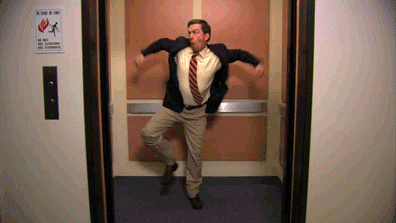
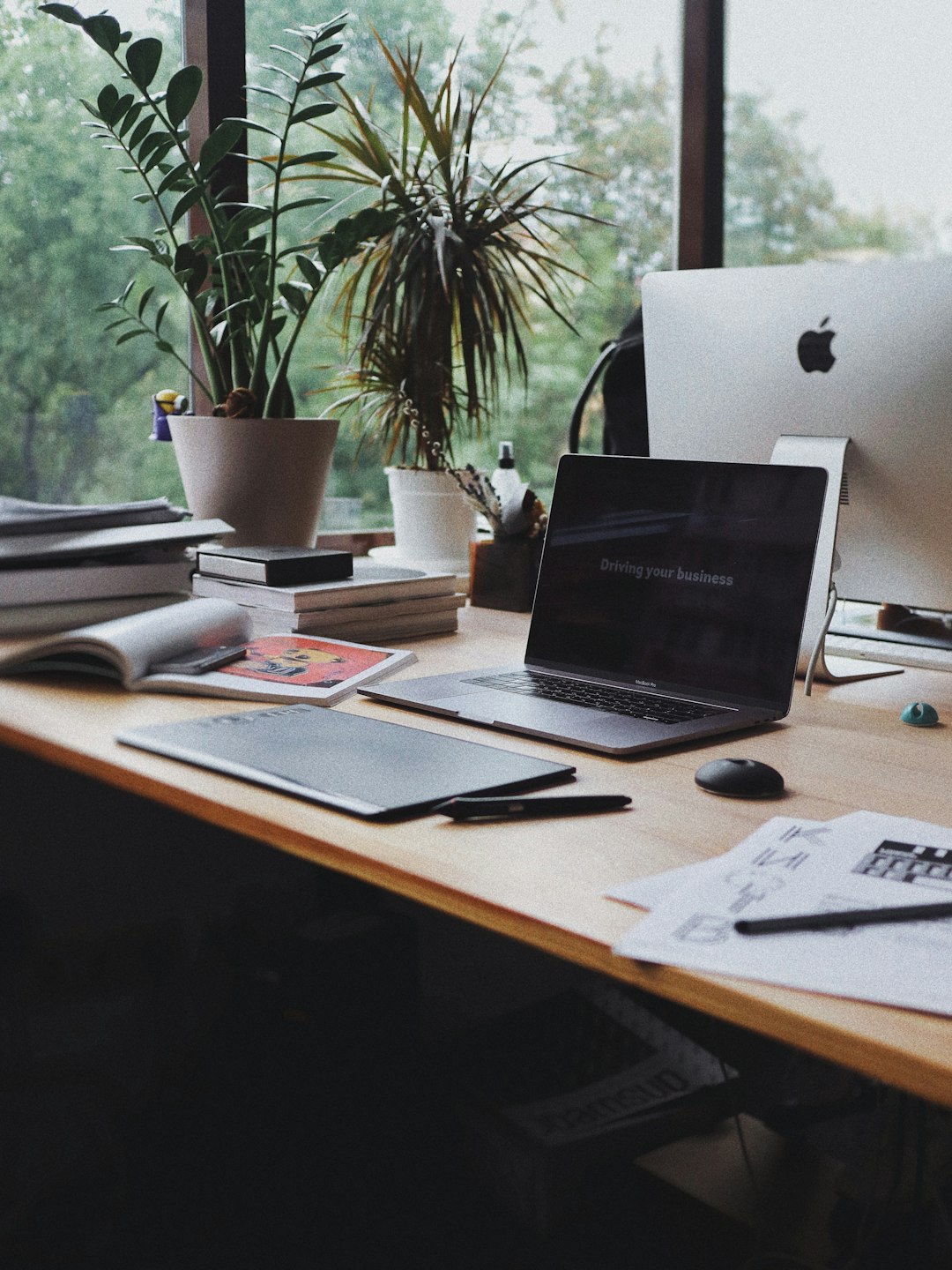
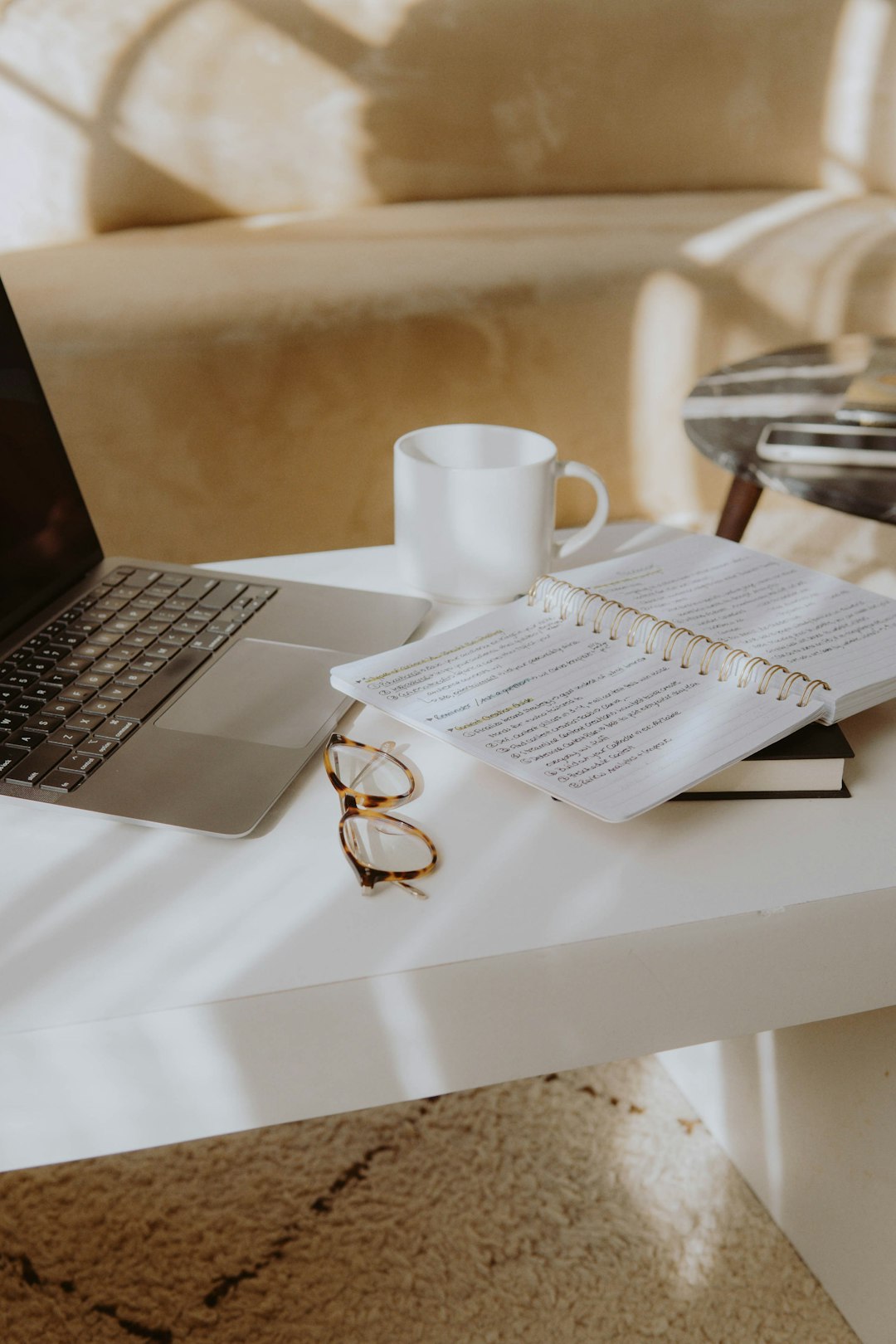


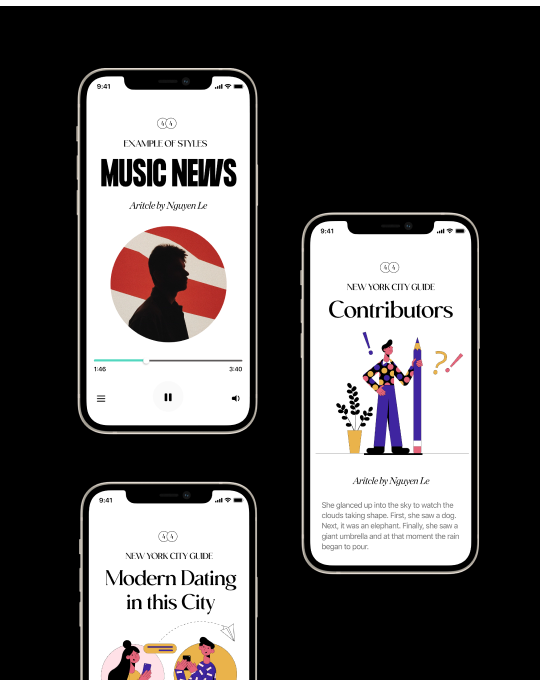


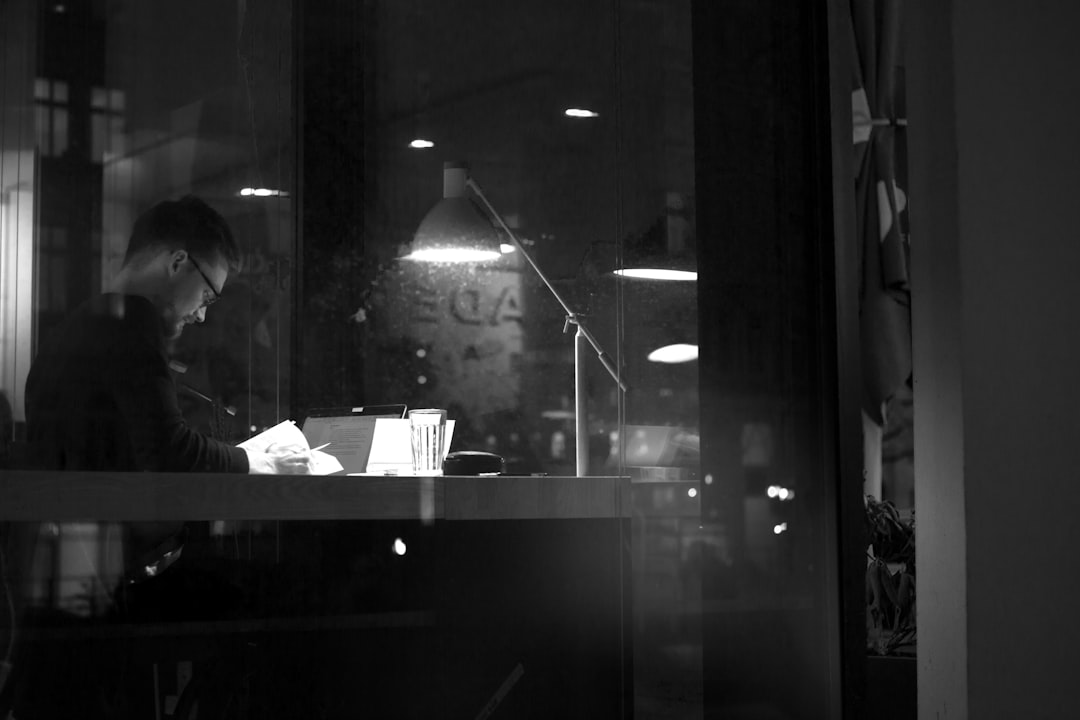

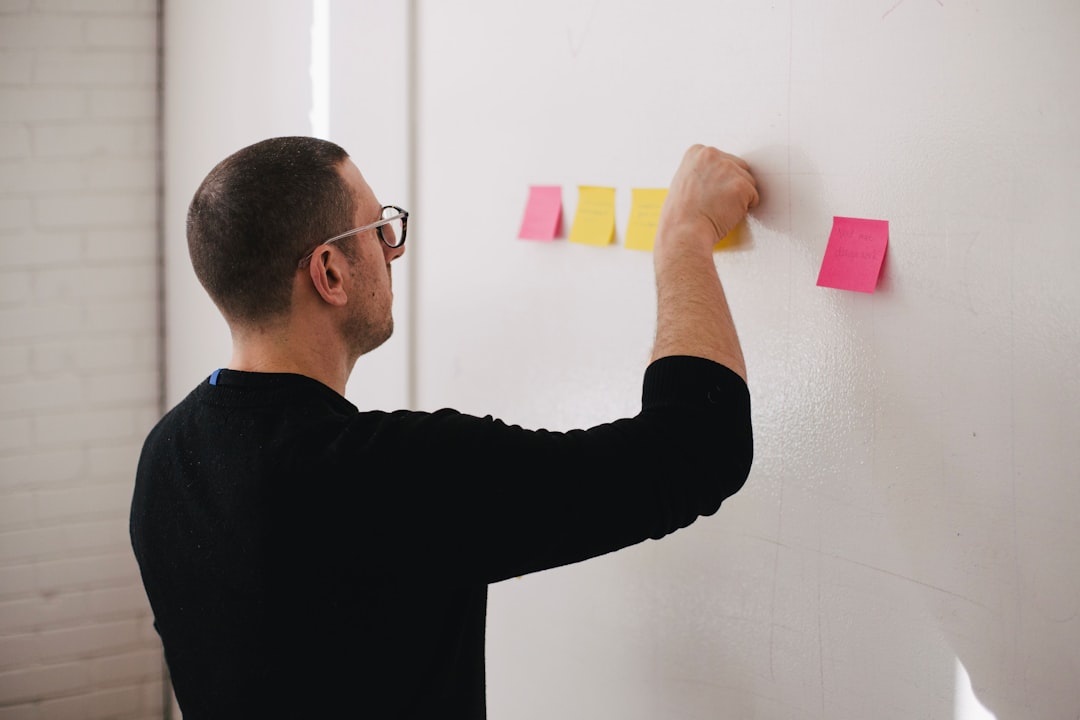
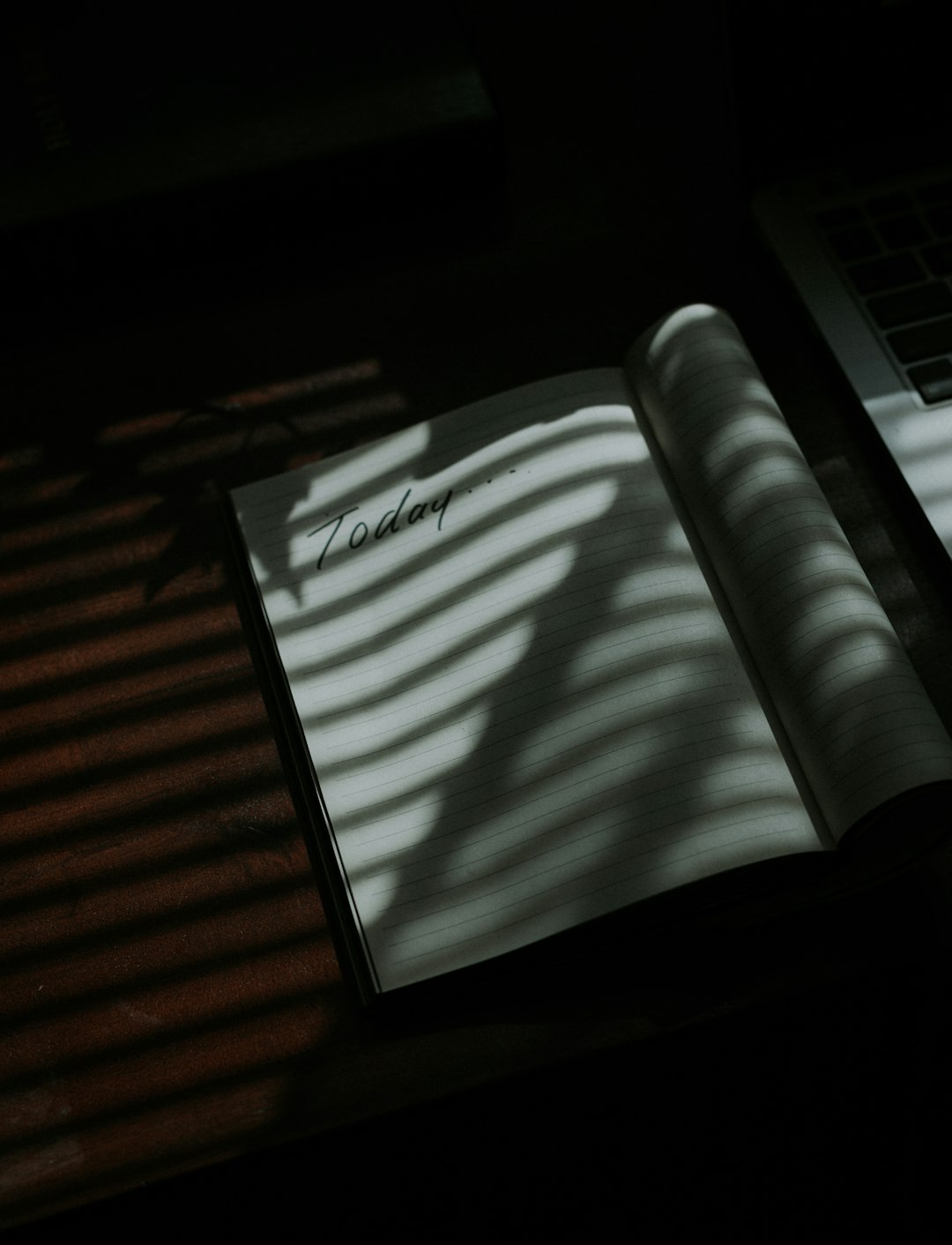
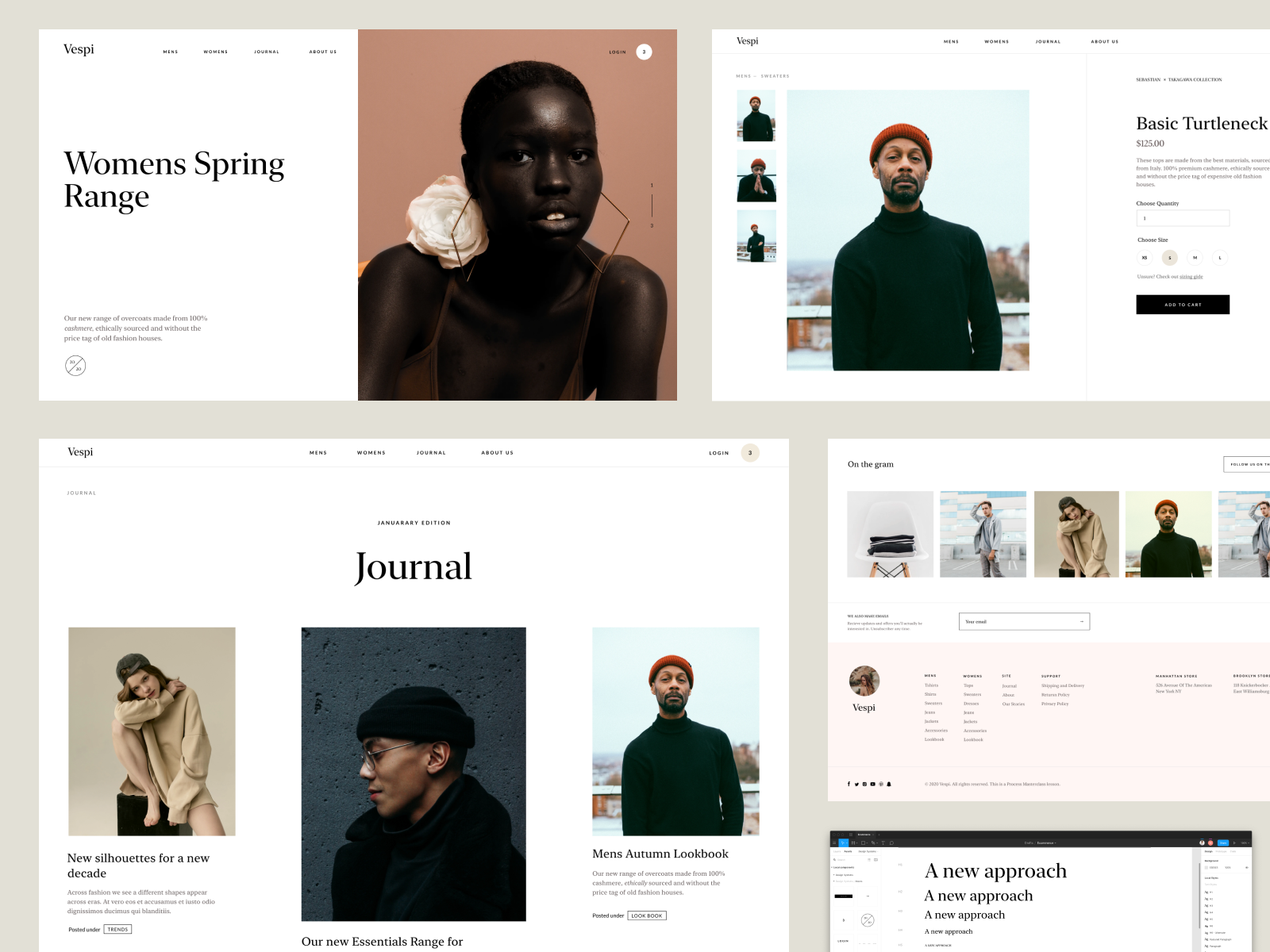

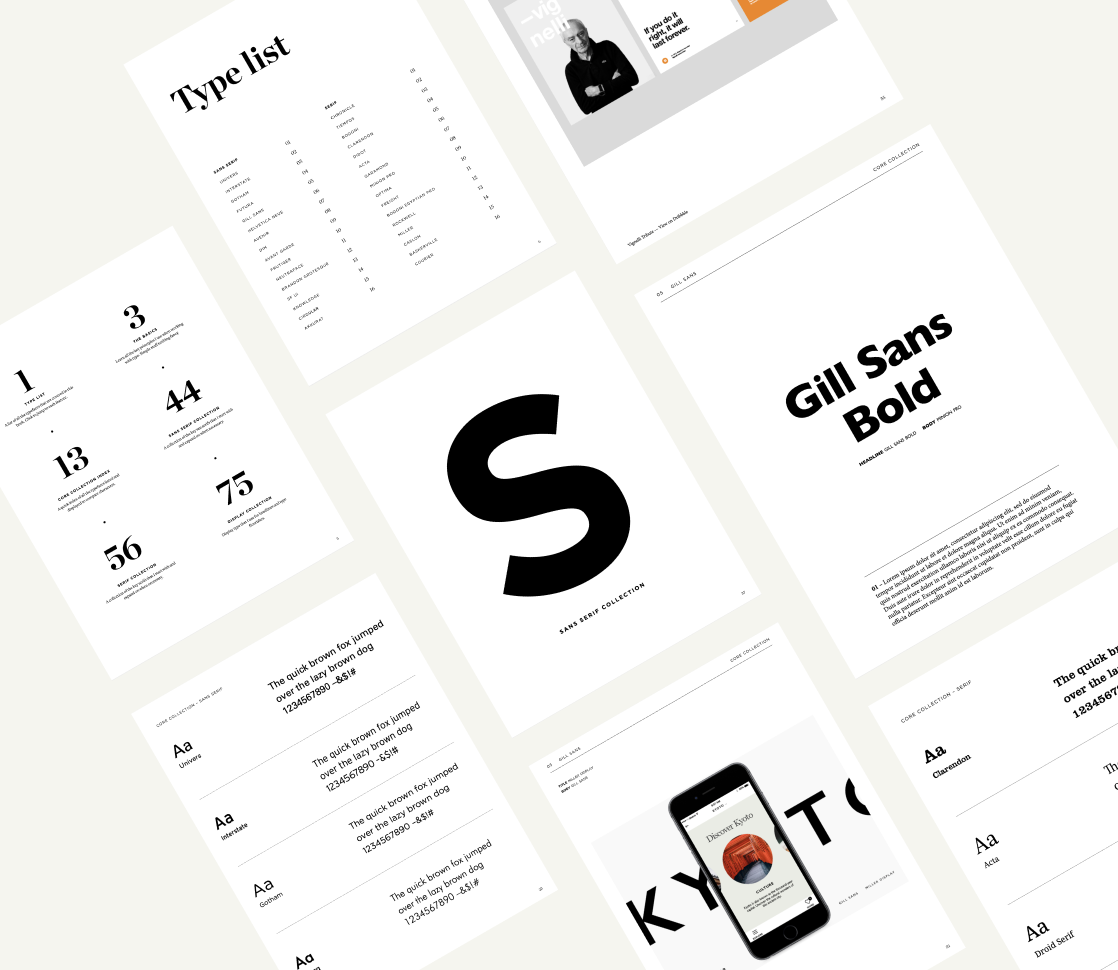
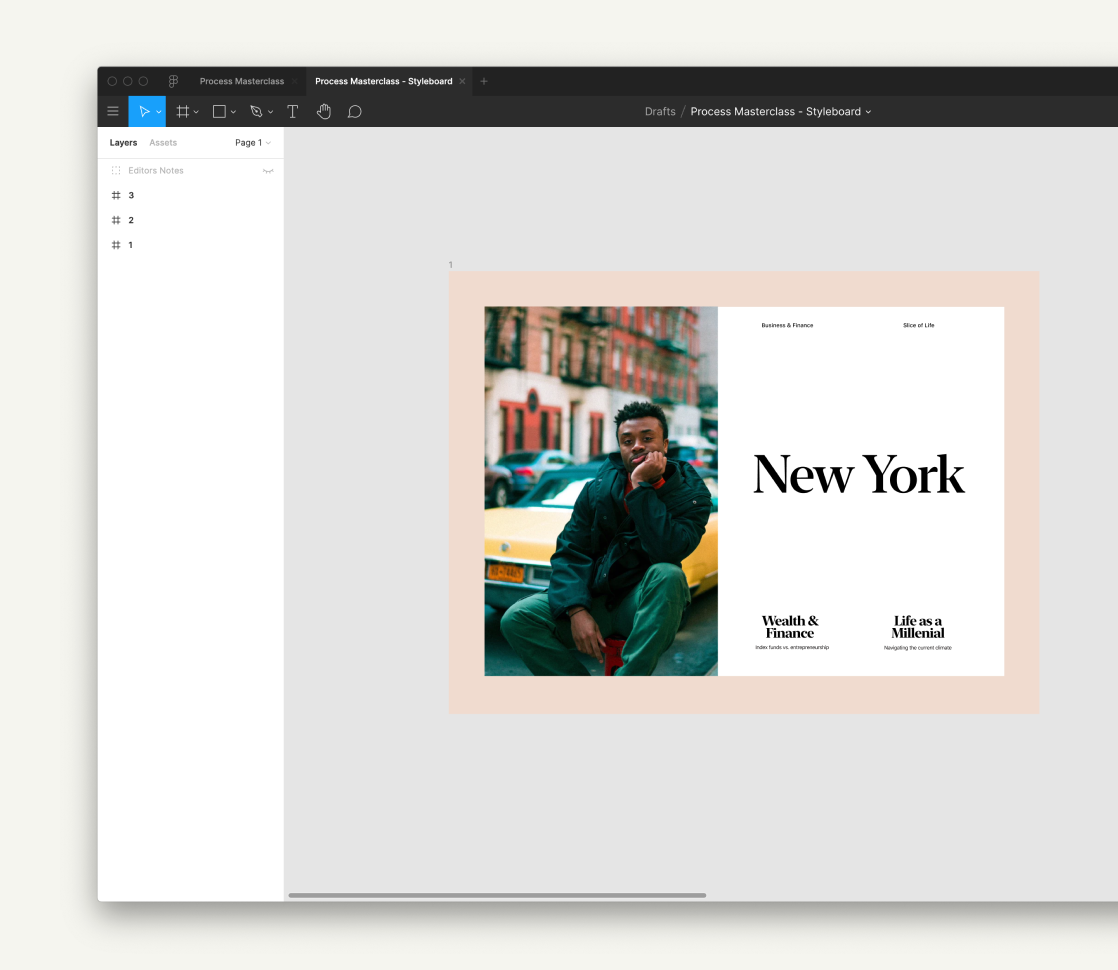
No Comments.